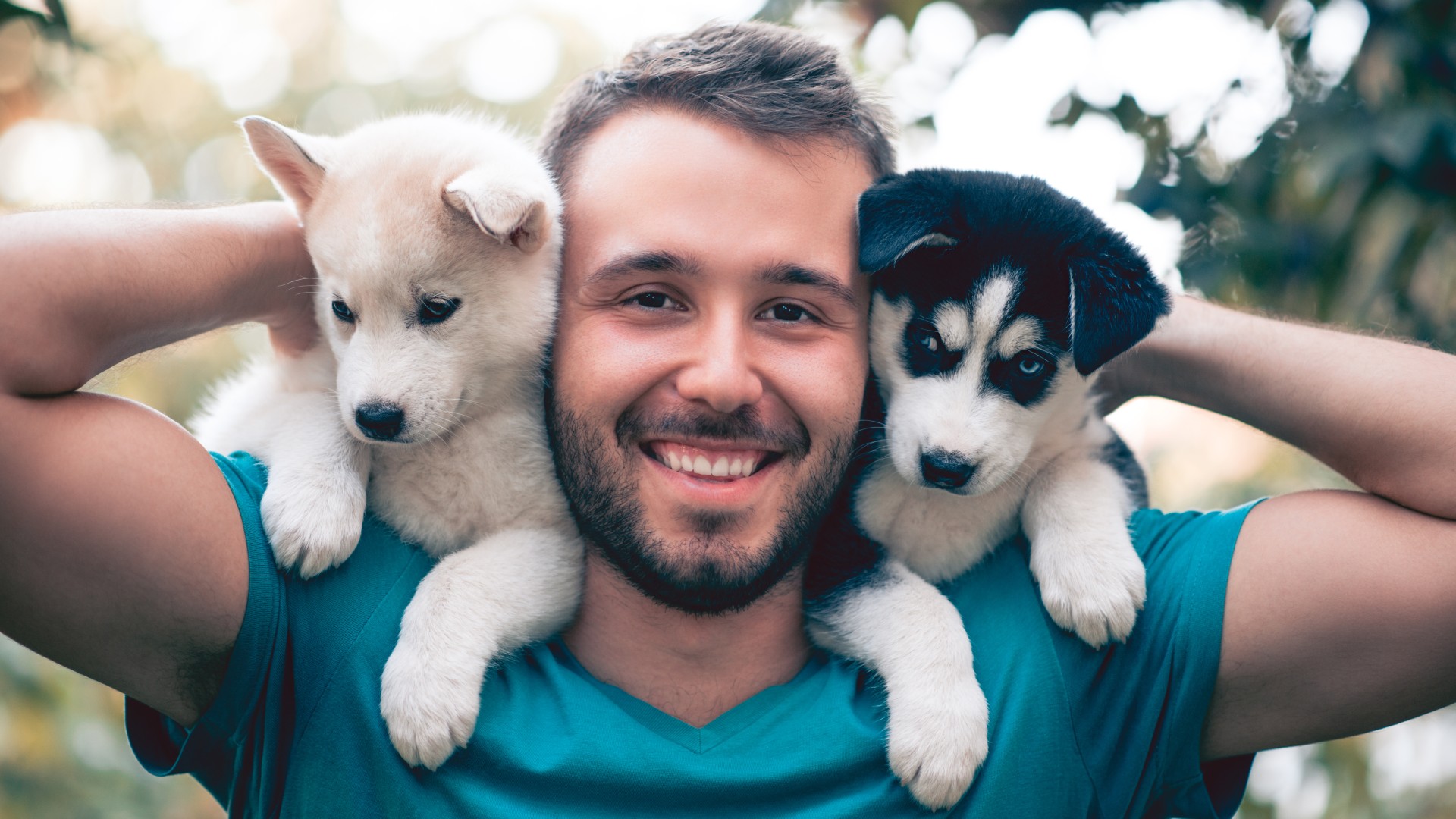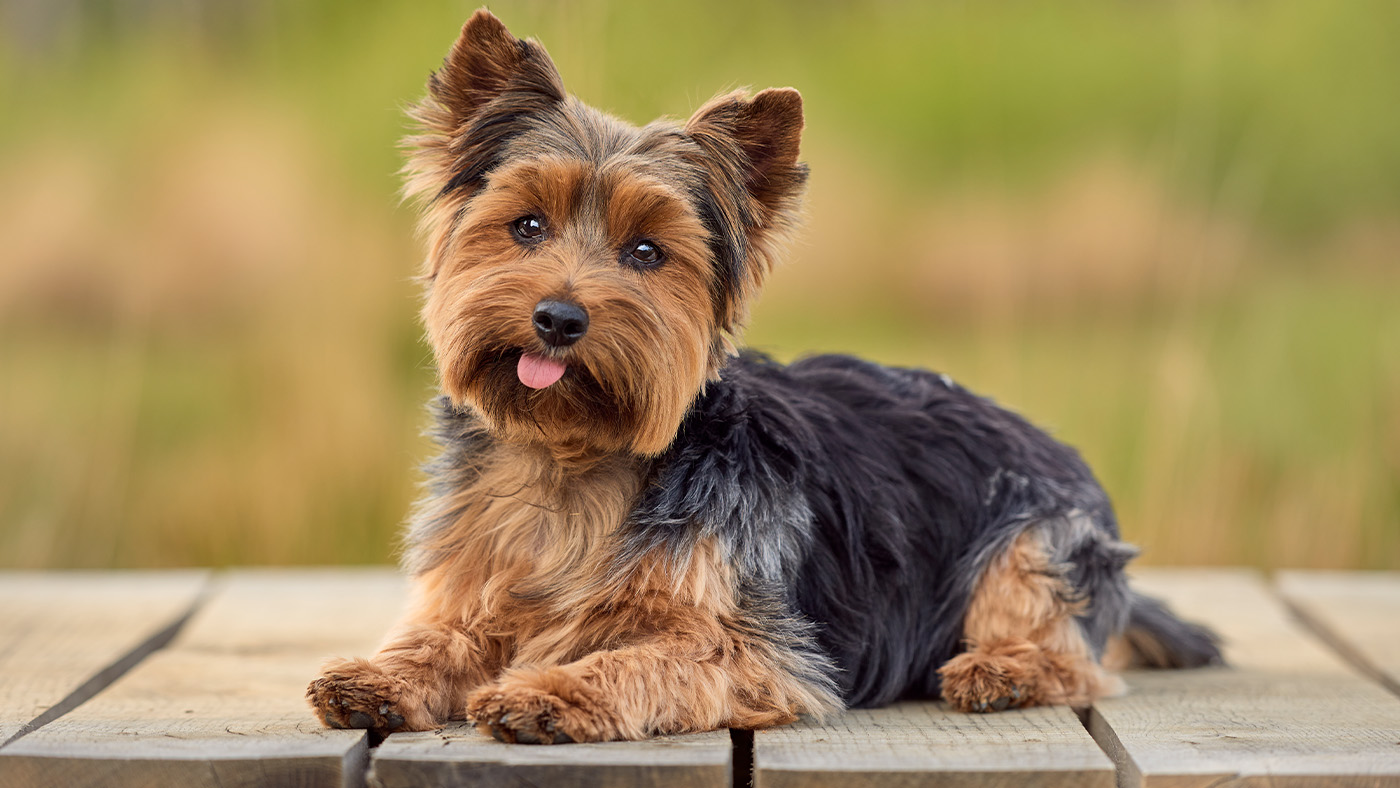Trainer shares things to remember during the first week with your new puppy
Here’s what to bear in mind during this exciting time!

So, you’ve got a new puppy, or you’re getting one soon...congratulations!
The thought of bringing home a puppy for the first time is a super exciting one and no doubt your mind is racing a mile a minute thinking of everything you need to buy and in preparation for your little one's arrival.
You’ve made sure you’ve got everything you need (including some of the best puppy toys), you’ve briefed your children – if you have them – on how to behave around the new arrival, and you’ve read more books and websites on puppies than you thought even existed.
And then you bring your puppy home. It’s an intense time, and while it’s a positive one, it’s easy to feel stressed too. After all, you’re looking after a brand new living being, and whether you’re a canine novice or a seasoned dog parent, it’s not always going to be easy.
But fortunately, award-winning trainer Lisa Burton of Listen Dog Training is here to remind us of three important things to remember during the first week with a new puppy. Let’s delve into them.
A post shared by Lisa | Award-Winning Dog Trainer & Course Creator (@listendogtraining)
A photo posted by on
1. Relationship: “Relationship is the foundation of all your future training,” Burton explains, “And the cement that holds together a life of joyful companionship.”
She recommends building your bond on trust, security, and positivity, as this will make developing skills like loose-leash walking and recall easier. And contrary to traditional views, you don’t need to ‘dominate’ your puppy, as you already control everything about your puppy’s life to begin with.
PetsRadar Newsletter
Get the best advice, tips and top tech for your beloved Pets
Rather, “make yourself a provider of the good stuff and regularly hand feed him for the first week or so,” Burton advises. And, she emphasizes the importance of taking an active role in playtime, describing it as an “investment into your bond.”
Reward every positive thing your pup does, too. Whether they’re going to the toilet outside, inspecting their crate, or just behaving well in an unfamiliar situation, give them a treat!
2. Gentle boundaries: Dogs are social animals, and aren’t used to being alone. But, of course, there will be times when they’ll need to be alone for a while. If you’re wondering how to crate train a dog, here’s what to do.
“Introduce your puppy to a crate from day one – make it the place that food, treats, and toys show up,” says Burton. Don’t close the door of the crate until your pup’s comfortable with it, either. Place the crate inside a puppy pen in the daytime so your pup can sleep soundly without feeling trapped.
At night, place the crate into your room with you, before gradually moving it out if you want to. And play lots of crate games so your pup’s confidence can grow. Burton explains, “By making boundaries normal from day one, you can begin to practice periods of separation in a controlled way, gradually increasing time and ensuring the experience remains rewarding.”
3. Positive pairing and confidence: This is all about socialization. Even before your pup is fully vaccinated, you can introduce them to a range of settings – even if you’re carrying them or driving them.
“When introducing new experiences, ensure puppy feels free to choose to investigate or move away if they wish to,” adds Burton. Choose quality over quantity, too. It’s best to introduce a small number of new experiences that your puppy reacts positively to than to overwhelm them with too many. And remember, says Burton, “No reaction is the best reaction.”
The puppy stage doesn’t last forever, but by following these tips, you’ll be setting both yourself and your puppy up for an easier ride as they get older. And in the meantime, you get to enjoy all those puppy cuddles!

Adam is a freelance journalist specialising in pets, music and culture, and mental health and wellbeing. He investigates and writes the large majority of news on PetsRadar, and collaborates with veterinary experts to produce informative pet care content.
Adam has a journalism degree from Southampton Solent University and a masters degree in Magazine Journalism from Cardiff University. He was previously senior editor at dog advice website DogTime.com, and has also written for The Independent, GoodToKnow and Healthline.
He owns two rescue cats, Bunny and Dougie, and has also previously had a rabbit, fish and Roborovski dwarf hamsters.
